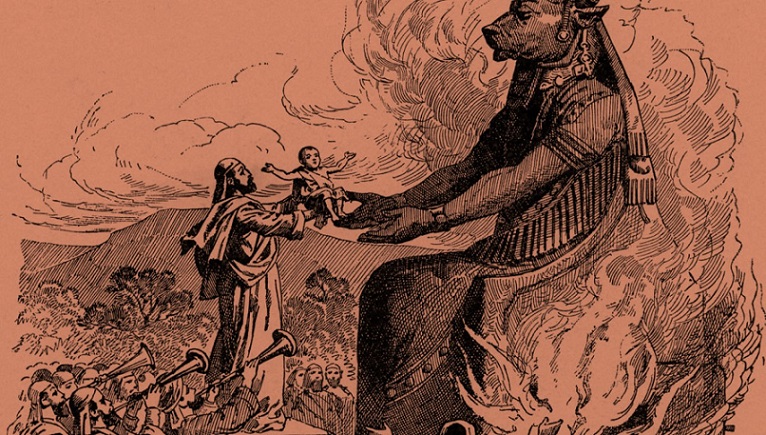Moloch
Beneath the sands and salted fields there lies
A desert land of men once prosperous
And proud. They raised a gilded city
With their queen, a grander one than any
Left behind, free and full of life—now dust,
Now burned, now dead, a place the gods despise,
A pyre of wanton sacrifice where died
Their goddess and their selves. All ash, their dreams
Usurped; enslaved; forgot. Amidst this first,
This third, this last defeat, did they curse
Themselves and pray? Did they, amidst the screams,
Despair, repent, and cry, “What is this lie?
Behold the murdered dead we gave, the blood
Of peace and victory! Behold the book
And burning psalter of our god, and could
This devil save? O fools, behold the graves!
Look on the blood, the innocence, the red,
Red ruin on those shining horns! Look on
Our image, fearful made, and weep, “What god,
What king, what freedom would demand a babe?
I wish I could walk without footsteps
I wish I could walk without footsteps,
That I could wander an earth undisturbed;
That I could pass like a leopard in winter,
Like a ghost never seen, never heard.
I wish I could walk without stepping,
That I could march without boots on the ground;
That I could pad like a cat on soft feet,
And tread like the dead—without sound.
I wish I could walk without stumbling,
That I could walk without killing what grew;
And I long for the day when the world is remade,
And all will remain—new.
A Nap
Soft, warm sun,
A summer hum:
I feel a nap approach.
Growing grass,
The clouds go past
My rest without reproach.
Richard Jordan is an assistant professor of international politics at Baylor University. He lives in Waco with his wife and two small children.















Richard, Since I’ve been known to take the occasional power nap, I heartily applaud your third poem! Mark
Clever poetry. “Moloch” reminded me of Shelley`s Ozymandias.
By the way, is the first poem about Carthage?
Thanks! Yes, it is about Carthage, among other things. I’m glad that came through.
The annihilation of Carthage was one of the greatest gifts that the Romans bequeathed to Western civilization.
Well I know there is a lot of controversy over whether they really did sacrifice their children. Plus the reference to their queen and the salted fields.
Richard, In many places both your rhymes and your meter were inaccurate. Now, you can tell me that this was exactly what you intended, or you can engage in a bit of self-analysis and figure out how to make things better. For example, the final line of “I wish …” would be better rendered as:
And all will remain, made new.
Thanks for the honest criticism. I did intend some of the rhymes and feet to be imperfect, but I recognize that’s a poor answer when an intentional device doesn’t have its intended effect.
Melchom, a monotetra
Melchom
Ammonite Abomination
Rabbis wrote your reputation:
A child catching-conflagration.
Lamentation, lamentation.
Proud pious parents paid the price
Asked by your burning avarice.
Rashi writes you as artifice
Of sacrifice. Of sacrifice.
By brazen brasier, burning bairns.
Canaan’s kind of kirks and cairns
Places where parental pairings
Lost their bearings. Lost their bearings.
Where massive manufactured men
– More monstrous;. Metal monsters, then.
Milcom, Moloch; “Mal kam”’s the stem.
“Great King” to them. “Great King” to them.
Then David’s armies, casting down
Your idols, robbed you of your crown
And for the grimoires you were bound.
“Melchom” was found. “Melchom” was found.
No longer King. Nor sadly, nurse
To burning bairns (a fitting curse)
Now named “he who carries the purse.”
It could be worse. It could be worse.
True, your reign lies in the past – or
Rules o’er less – That’s no disaster
Pipers play what payer’s ask for.
You’re Paymaster. You’re PayMASTER.